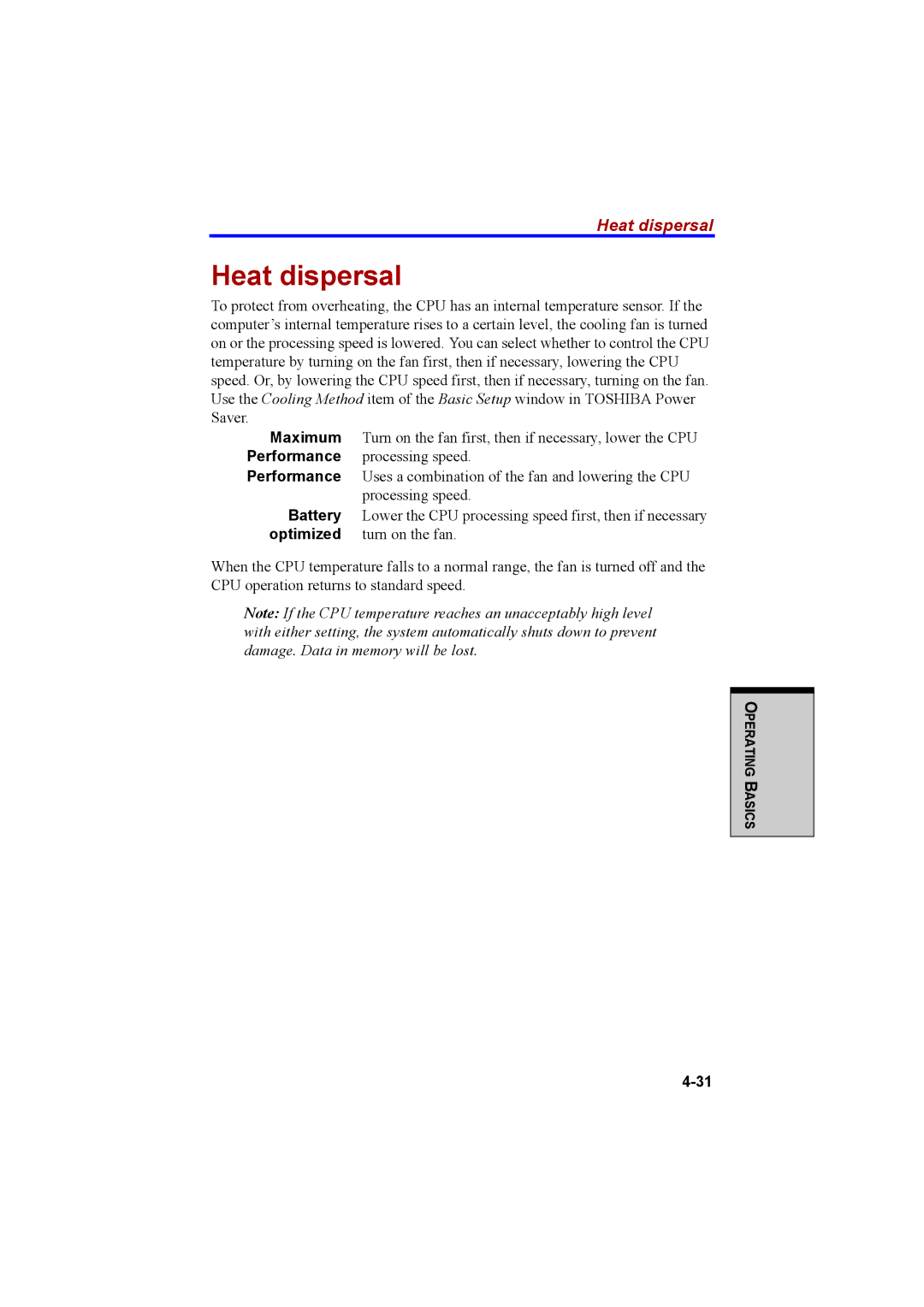
Heat dispersal
Heat dispersal
To protect from overheating, the CPU has an internal temperature sensor. If the computer’s internal temperature rises to a certain level, the cooling fan is turned on or the processing speed is lowered. You can select whether to control the CPU temperature by turning on the fan first, then if necessary, lowering the CPU speed. Or, by lowering the CPU speed first, then if necessary, turning on the fan. Use the Cooling Method item of the Basic Setup window in TOSHIBA Power Saver.
Maximum | Turn on the fan first, then if necessary, lower the CPU |
Performance | processing speed. |
Performance | Uses a combination of the fan and lowering the CPU |
| processing speed. |
Battery | Lower the CPU processing speed first, then if necessary |
optimized | turn on the fan. |
When the CPU temperature falls to a normal range, the fan is turned off and the CPU operation returns to standard speed.
Note: If the CPU temperature reaches an unacceptably high level with either setting, the system automatically shuts down to prevent damage. Data in memory will be lost.
OPERATING BASICS
